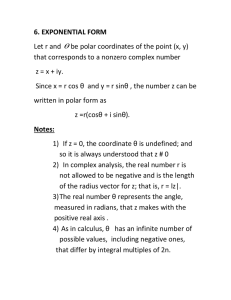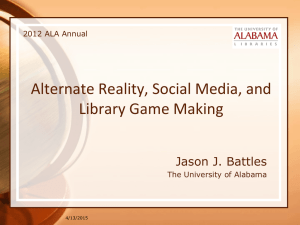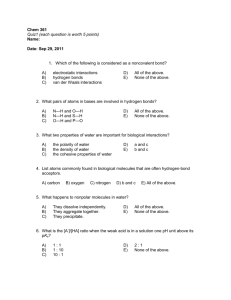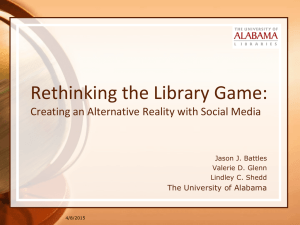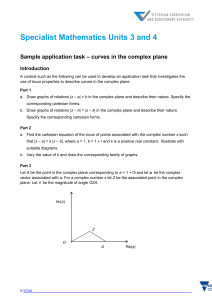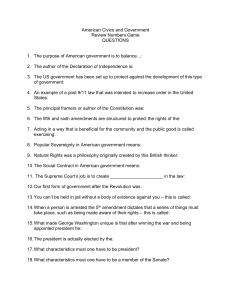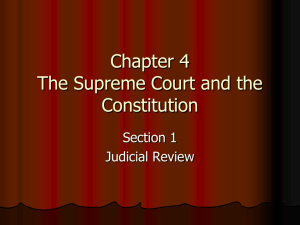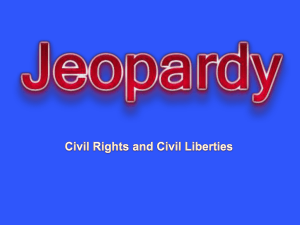Contemporary Supreme Court Cases syllabus 2016
advertisement
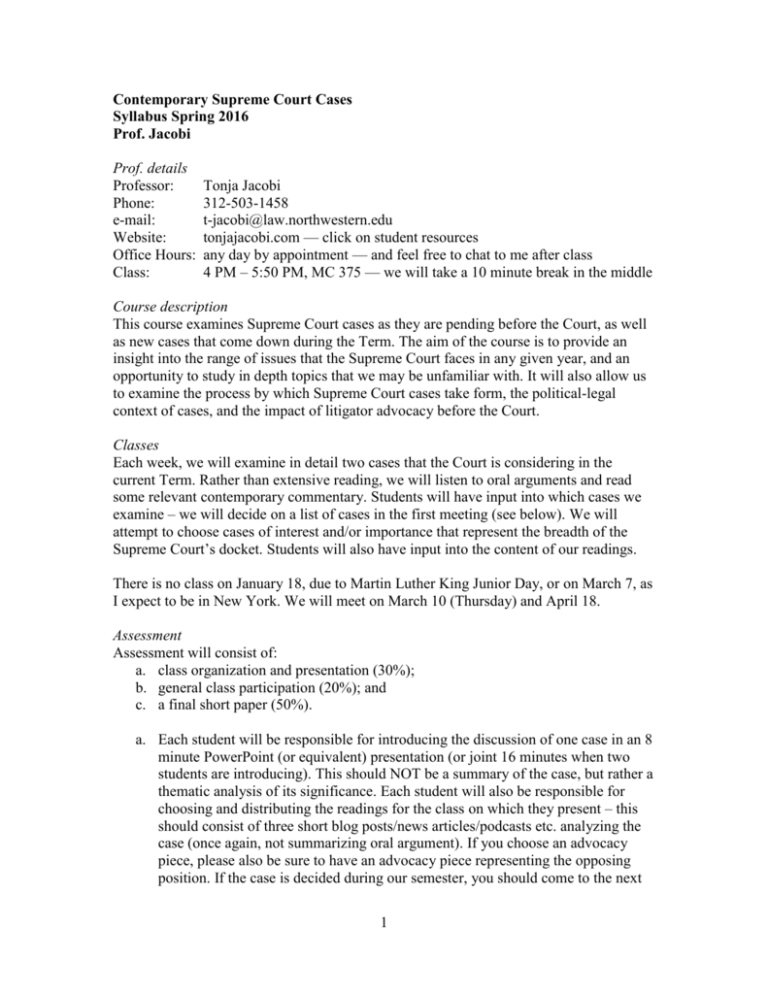
Contemporary Supreme Court Cases Syllabus Spring 2016 Prof. Jacobi Prof. details Professor: Phone: e-mail: Website: Office Hours: Class: Tonja Jacobi 312-503-1458 t-jacobi@law.northwestern.edu tonjajacobi.com — click on student resources any day by appointment — and feel free to chat to me after class 4 PM – 5:50 PM, MC 375 — we will take a 10 minute break in the middle Course description This course examines Supreme Court cases as they are pending before the Court, as well as new cases that come down during the Term. The aim of the course is to provide an insight into the range of issues that the Supreme Court faces in any given year, and an opportunity to study in depth topics that we may be unfamiliar with. It will also allow us to examine the process by which Supreme Court cases take form, the political-legal context of cases, and the impact of litigator advocacy before the Court. Classes Each week, we will examine in detail two cases that the Court is considering in the current Term. Rather than extensive reading, we will listen to oral arguments and read some relevant contemporary commentary. Students will have input into which cases we examine – we will decide on a list of cases in the first meeting (see below). We will attempt to choose cases of interest and/or importance that represent the breadth of the Supreme Court’s docket. Students will also have input into the content of our readings. There is no class on January 18, due to Martin Luther King Junior Day, or on March 7, as I expect to be in New York. We will meet on March 10 (Thursday) and April 18. Assessment Assessment will consist of: a. class organization and presentation (30%); b. general class participation (20%); and c. a final short paper (50%). a. Each student will be responsible for introducing the discussion of one case in an 8 minute PowerPoint (or equivalent) presentation (or joint 16 minutes when two students are introducing). This should NOT be a summary of the case, but rather a thematic analysis of its significance. Each student will also be responsible for choosing and distributing the readings for the class on which they present – this should consist of three short blog posts/news articles/podcasts etc. analyzing the case (once again, not summarizing oral argument). If you choose an advocacy piece, please also be sure to have an advocacy piece representing the opposing position. If the case is decided during our semester, you should come to the next 1 class prepared with a very brief summary of what the Court held, who made up the majority coalition, and if there has been any significant reaction to the case. b. This is a seminar and is made meaningful and enjoyable by your participation. You will not be able to skip any week’s preparation. In the past, participation has always been excellent, as this is an interesting and fun topic. c. The paper will be 2000 – 3000 words. Whereas the presentation allows students to provide an in-depth analysis of one case, the paper is a vehicle for showing your breadth of knowledge of the cases discussed during the semester. You do not need to discuss every case, but you do need to discuss a significant proportion of them and have a selection criteria, such as those cases already decided during the Term. The paper can involve minimal research – use bluebook footnoting for any research you do. Students can choose between: 1. Writing a discussion about the overall direction of the Supreme Court’s agenda that emerges from the various topics we examine, developing a theme to the paper and seeing if there is a coherent logic to the Court’s approach this Term; 2. Analyzing the overall direction of the Supreme Court’s mode of decisionmaking, and whether judicial ideology can fully explain the various topics we examine, or whether legal methodology or some other factor drives SCOTUS opinions; 3. Assessing the impact of Supreme Court oral arguments on judicial decisionmaking this Term; this can be done utilizing question and time data on oyez.org. You cannot write a paper that centers on cases other than those discussed in class. It is, of course, fine to discuss other cases as context to your analysis, but not as your primary focus. Examples of previous excellent papers will be posted on the website. Papers should be single-spaced 12 point with paragraph spaces, in any font other than courier. Please send your paper to me and to my assistant, Maryanne Martinez, mmartinez@law.northwestern.edu, by the end of exam period. Extra credit & multi-draft papers Three course credits for multi-draft papers are only available on a limited basis, as I do not limit the class to 15. At the end of the first class, students can discuss with me the possibility of writing a longer paper. Another option is to write a longer paper for supervised credit in subsequent semesters. 2 Proposed schedule January 11 — administration and introduction Our first class will be a mixture of administration and introduction. On the administration side, we will choose the cases that we will study and students will select for which class they will lead discussion. Students should come prepared in the first class to discuss cases of interest that are pending in the Supreme Court’s current Term, and to advocate for or against discussing particular cases. The rest of the syllabus constitutes the default list of proposed cases. You will see that the cases I have selected have a public law bias — I am open to different topics, but you will need to advocate for them. We will then have an introductory discussion, in which I will talk to you a little about the literature and available tools of Supreme Court analysis and modes of decision-making. There is no reading for this introductory discussion. The only thing students are expected to do for the first class to read the brief descriptions of this Term’s cases and be prepared to discuss them. You might also think about which classes you want to volunteer to lead. They are available here: http://www.scotusblog.com/case-files/terms/ot2015/ January 18 — no class, Martin Luther King Jr. Day January 25 — constitutional law and race Fisher v. University of Texas at Austin, No. 14-981 [Arg: 12.9.2015 Trans./Aud.] Issue(s): Whether the Fifth Circuit’s re-endorsement of the University of Texas at Austin’s use of racial preferences in undergraduate admissions decisions can be sustained under this Court’s decisions interpreting the Equal Protection Clause of the Fourteenth Amendment, including Fisher v. University of Texas at Austin. Foster v. Chatman, No. 14-8349 [Arg: 11.2. 2015 Trans./Aud.] Issue(s): Whether the Georgia courts erred in failing to recognize race discrimination under Batson v. Kentucky in the extraordinary circumstances of this death penalty case (where arguably potential jurors were kept off of a case because of their race — alleged racial profiling by prosecutors to keep “all or most blacks from being seated on a jury to judge a black defendant for killing a white person”). February 1 — elections Harris v. Arizona Independent Redistricting Commission, No. 14-232 [Arg: 12.8.2015 Trans./Aud.] Issue(s): (1) Whether the desire to gain partisan advantage for one political party justifies intentionally creating over-populated legislative districts that results in tens of thousands of individual voters being denied Equal Protection because their individual votes are devalued, violating the one-person, one-vote principle; and (2) whether the desire to obtain favorable preclearance review by the Justice 3 Department permits the creation of legislative districts that deviate from the oneperson, one-vote principle, and, even if creating unequal districts to obtain preclearance approval was once justified, whether this is still a legitimate justification after Shelby County v. Holder. Evenwel v. Abbott, No. 14-940 [Arg: 12.8.2015 Trans./Aud.] Issue(s): Whether the three-judge district court correctly held that the “oneperson, one-vote” principle under the Equal Protection Clause allows States to use total population, and does not require States to use voter population, when apportioning state legislative districts. February 8 — criminal law and procedure Montgomery v. Louisiana, No. 14-280 [Arg: 10.13.2015 Trans./Aud.] Issue(s): (1) Whether Miller v. Alabama adopts a new substantive rule that applies retroactively on collateral review to people condemned as juveniles to die in prison; and (2) whether the Supreme Court has jurisdiction to decide whether the Supreme Court of Louisiana correctly refused to give retroactive effect in this case to this Court’s decision in Miller v. Alabama. Ocasio v. U.S., No. 14-361 [Arg: 10.6.2015 Trans./Aud.] Issue(s): Whether a conspiracy to commit extortion requires that the conspirators agree to obtain property from someone outside the conspiracy. February 15 — separation of powers Bank Markazi v. Peterson, No. 14-770 [Arg: 1.13.2016] Issue(s): Whether 22 U.S.C. § 8772 – a statute that effectively directs a particular result in a single pending case – violates the separation of powers. Puerto Rico v. Sanchez Valle, No. 15-108 [Arg: 1.13.2016] Issue(s): Whether the Commonwealth of Puerto Rico and the federal government are separate sovereigns for purposes of the Double Jeopardy Clause of the United States Constitution. February 22 — labor law and First Amendment Friedrichs v. California Teachers Association, No. 14-915 [Arg: 1.11.2016] Issue(s): (1) Whether Abood v. Detroit Board of Education should be overruled and public-sector “agency shop” arrangements invalidated under the First Amendment; and (2) whether it violates the First Amendment to require that public employees affirmatively object to subsidizing nonchargeable speech by public-sector unions, rather than requiring that employees affirmatively consent to subsidizing such speech. Heffernan v. City of Paterson, No. 14-1280 [Arg: 1.19.2016] Issue(s): Whether the First Amendment bars the government from demoting a public employee based on a supervisor's perception that the employee supports a political candidate. 4 February 29 — constitutional criminal procedure: prosecution Luis v. U.S., No. 14-419 [Arg: 11.10.2015 Trans./Aud.] Issue(s): Whether the pretrial restraint of a criminal defendant's legitimate, untainted assets (those not traceable to a criminal offense) needed to retain counsel of choice violates the Fifth and Sixth Amendments. Puerto Rico v. Sanchez Valle, No. 15-108 [Arg: 1.13.2016] Issue(s): Whether the Commonwealth of Puerto Rico and the federal government are separate sovereigns for purposes of the Double Jeopardy Clause of the United States Constitution. March 7 — no class, TJ in NY — to be made up on March 10… March 10, Thursday, 12PM – 1:20PM (Note there will be no break), in MC375 — statutory interpretation, IP & state power Stryker Corp. v. Zimmer, No. 14-1520 & Halo Electronics v. Pulse Electronics, No. 14-1513 [Arg: 2.23.2016] (consolidated cases) Issue(s): (1) Whether the Federal Circuit improperly abrogated the plain meaning of 35 U.S.C. § 284 by forbidding any award of enhanced damages unless there is a finding of willfulness under a rigid, two-part test, when this Court recently rejected an analogous framework imposed on 35 U.S.C. § 285, the statute providing for attorneys' fee awards in exceptional cases. Issue(s): (1) Whether the Federal Circuit erred by applying a rigid, two-part test for enhancing patent infringement damages under 35 U.S.C. § 284, that is the same as the rigid, two-part test this Court rejected last term in Octane Fitness, LLC v. ICON Health & Fitness, Inc. for imposing attorney fees under the similarly-worded 35 U.S.C. § 285. Taylor v. U.S., No. 14-6166 [Arg: 2.23.2016] Issue(s): Whether, in a federal criminal prosecution under the Hobbs Act, 18 U.S.C. § 1951, the government is relieved of proving beyond a reasonable doubt the interstate commerce element by relying exclusively on evidence that the robbery or attempted robbery of a drug dealer is an inherent economic enterprise that satisfies, as a matter of law, the interstate commerce element of the offense. March 14 — death penalty: 3 possibilities Hurst v. Florida, No. 14-7505 [Arg: 10.13.2015 Trans./Aud.] Issue(s): Whether Florida's death sentencing scheme violates the Sixth Amendment or the Eighth Amendment in light of this Court's decision in Ring v. Arizona. Kansas v. Carr, No. 14-449 [Arg: 10.7.2015] Issue(s): Whether the Eighth Amendment requires that a capital-sentencing jury be affirmatively instructed that mitigating circumstances “need not be proven beyond a reasonable doubt,” as the Kansas Supreme Court held here, or instead 5 whether the Eighth Amendment is satisfied by instructions that, in context, make clear that each juror must individually assess and weigh any mitigating circumstances; and whether the trial court's decision not to sever the sentencing phase of the co-defendant brothers’ trial here – a decision that comports with the traditional approach preferring joinder in circumstances like this – violated an Eighth Amendment right to an “individualized sentencing” determination and was not harmless in any event. Williams v. Pennsylvania, No. 15-5040 [Arg: 2.29.2016] Issue(s): (1) Whether the Eighth and Fourteenth Amendments are violated where a state supreme court justice declines to recuse himself in a capital case in which he had personally approved the decision to pursue capital punishment against the defendant in his prior capacity as an elected prosecutor and continued to head the prosecutors’ office that defended the death verdict on appeal, and where he had publicly expressed strong support for capital punishment during his judicial election campaign by referencing the number of defendants he had “sent” to death row, including the defendant in the case now before the court; and (2) whether the Eighth and Fourteenth Amendments are violated by the participation of a potentially biased jurist on a multimember tribunal deciding a capital case, regardless of whether his vote is ultimately decisive. March 21 — no class, spring break March 28 — constitutional rights Whole Woman’s Health v. Cole, No. 15-274 [Arg: 3.2.2016] Issue(s): (1) Whether, when applying the “undue burden” standard of Planned Parenthood v. Casey, a court errs by refusing to consider whether and to what extent laws that restrict abortion for the stated purpose of promoting health actually serve the government’s interest in promoting health; and (2) whether the Fifth Circuit erred in concluding that this standard permits Texas to enforce, in nearly all circumstances, laws that would cause a significant reduction in the availability of abortion services while failing to advance the State’s interest in promoting health - or any other valid interest. Wittman v. Personhuballah, No. 14-1504 Issue(s): (1) Whether the court below erred in failing to make the required finding that race rather than politics predominated in District 3, where there is no dispute that politics explains the Enacted Plan; (2) whether the court below erred in relieving plaintiffs of their burden to show an alternative plan that achieves the General Assembly's political goals, is comparably consistent with traditional districting principles, and brings about greater racial balance than the Enacted Plan; (3) whether, regardless of any other error, the finding of a Shaw violation by the court below was based on clearly erroneous fact-finding; (4) whether the majority erred in holding that the Enacted Plan fails strict scrutiny because it increased District 3's black voting-age population percentage above the benchmark percentage, when the undisputed evidence establishes that the increase 6 better complies with neutral principles than would reducing the percentage and no racial bloc voting analysis would support a reduction capable of realistically securing Section 5 preclearance. April 4 — constitutional criminal procedure: investigation Utah v. Strieff, No. 14-1373 [Arg: 2.22.2016] Issue(s): Whether evidence seized incident to a lawful arrest on an outstanding warrant should be suppressed because the warrant was discovered during an investigatory stop later found to be unlawful. Birchfield v. North Dakota, No. 14-1468 Issue(s): Whether, in the absence of a warrant, a state may make it a crime for a person to refuse to take a chemical test to detect the presence of alcohol in the person’s blood. April 11— ACA & freedom of religion — 3 possibilities: Zubik v. Burwell, No. 14-1418 Issue(s): Whether the HHS contraceptive-coverage mandate and its “accommodation” violate the Religious Freedom Restoration Act by forcing religious nonprofits to act in violation of their sincerely held religious beliefs, when the government has not proven that this compulsion is the least restrictive means of advancing any compelling interest. Priests for Life v. Burwell, No. 14-1453 Issue(s): Whether the contraceptive services mandate of the Affordable Care Act as applied to non-exempt, nonprofit religious organizations violates the Religious Freedom Restoration Act. Little Sisters of the Poor Home for the Aged v. Burwell, No. 15-105 Issue(s): (1) Whether the availability of a regulatory method for nonprofit religious employers to comply with the Department of Health and Human Services’ contraceptive mandate eliminates either the substantial burden on religious exercise or the violation of RFRA that this Court recognized in Burwell v. Hobby Lobby Stores, Inc.; and (2) whether HHS satisfies RFRA’s demanding test for overriding sincerely held religious objections in circumstances where HHS itself insists that overriding the religious objection will not fulfill HHS’s regulatory objective—namely, the provision of no-cost contraceptives to the objector’s employees. April 18 — state water rights (a.k.a. the cause of future wars) Florida v. Georgia, No. 22o142 Issue(s): Whether Florida is entitled to equitable apportionment of the waters of the Apalachicola-Chattahoochee-Flint River Basin and appropriate injunctive relief against Georgia to sustain an adequate flow of fresh water into the Apalachicola Region. CVSG: 09/18/2014. 7 Mississippi v. Tennessee, No. 22o143 Issue(s): (1) Whether the Court will grant Mississippi leave to file an original action to seek relief from respondents’ use of a pumping operation to take approximately 252 billion gallons of high-quality groundwater; (2) whether Mississippi has sole sovereign authority over and control of groundwater naturally stored within its borders, including in sandstone within Mississippi’s borders; and (3) whether Mississippi is entitled to damages, injunctive, and other equitable relief for the Mississippi intrastate groundwater intentionally and forcibly taken by respondents. CVSG: 5/12/2015 8
